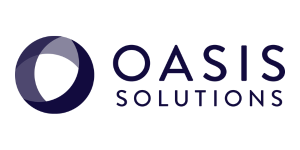
When it comes to choosing a Customer Relationship Management (CRM) system for your company, it is crucial that you make the right decision. After all, a CRM is essential for any business to build and maintain relationships with new and existing customers.
And there are a lot of options out there.
The key to success in choosing a CRM is simple: choose one that everyone in your organization will actually use. Sounds easy enough, right? Your team needs a CRM that will be easy to use, ensure effective follow up and capture essential information.
So, let’s look at two of the most commonly used CRM systems: NetSuite and Salesforce, and see how they measure up when it comes to key features and driving beyond closed deals.
Customization
Some might say that Salesforce has a leg up on NetSuite’s user interface in terms of aesthetics and its customization is somewhat simpler for the end user, however an administrator is required to give permissions and definitions for everything which can be burdensome.
Reporting in Salesforce is easy with a simple process to convert reports into key performance indicators and other analytics and users can be setup to have multiple dashboards, dashboards by roles or dashboards by users.
While NetSuite may not be as ”pretty” of a software as Salesforce, it still provides great customization options with its toolkit, SuiteCloud. With SuiteCloud’s features, you have the capability to customize very complex business processes using SuiteScript, SuiteFlow and SuiteBuilder. Such customizations are also retained within the account when upgrades occur.
Integration
One of Salesforce’s biggest advantages is the AppExchange. The integrations and apps available for Salesforce are ridiculous; everyone wants to develop on Salesforce’s platform because of its massive market share.
Conversely, Salesforce is only a CRM and to maximize its potential you are looking at multiple integrations and some enhanced customization. This translates to a lot more money for the client to spend that they may not have anticipated or budgeted for in the project.
NetSuite doesn’t need to be integrated with any applications in order to provide a 360 degree view - it can not only act as a CRM but also an accounting and inventory solution. It provides built-in order management and the user can see detailed back-office information. NetSuite is an all-in-one package; it does all the same things that Salesforce does, without the added cost, plus the benefit of a direct relationship to an ERP.
Ease of Implementation
Salesforce is a great fit for high end organizations or enterprises, making integration a bit more complex. For an organization to really get the most out of Salesforce they need a solid admin user and those can be difficult to come by. Plus these roles can also be very expensive for organizations to sustain.
NetSuite, on the other hand, offers a solution package that fits almost any organizational size or need. Sales teams often find it easier to integrate as it has a more user-friendly interface. While both are cloud-based software, NetSuite is the only one that offers a true all-inclusive cloud solution. NetSuite is also backed by Oracle, one of the leading enterprise software companies in the world.
So Who Wins?
When you weigh all these factors, NetSuite is a better product overall because you get so many toys in one package. With Salesforce, you are looking at multiple integrations and license fees for those integrations… that can get really expensive.
Salesforce may have a more aesthetically pleasing platform and dashboards, but at the end of day NetSuite does all the same things, without the added costs plus the benefit of a direct relationship to an ERP. That advantage alone sets NetSuite apart from Salesforce.
Need help choosing the right CRM for your organization? Let Oasis help.


